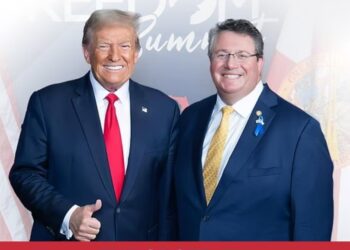Todd Bensman, a seasoned journalist with the Center for Immigration Studies, has shed light on a deeply troubling aspect of the current immigration crisis: its impact on indigenous tribes in Central America. His recent reports, informed by his fieldwork in Colombia and Panama, reveal a stark narrative of cultural erosion and distress experienced by the Embera tribe due to the Biden administration’s border policies.
"Nobody’s ever spoken with these chiefs before,” Bensman noted, emphasizing the unprecedented nature of their testimony.
In his recent article, Bensman exposes the harsh reality faced by the Embera tribe, which lives in the Darien Gap—a critical migration corridor between Colombia and Panama. Bensman met with five Embera chiefs who provided a rare and distressing account of how mass migration has devastated their communities.
According to Bensman, the chiefs’ grievances are severe. They criticized the Biden administration for creating a migration crisis that has led to the inundation of their lands by thousands of migrants. The chiefs detailed how the influx has disrupted their traditional way of life, with young men abandoning their cultural practices to engage in trafficking and substance abuse.
"The young men have left their traditional ways of life to run boats and immigrants on the rivers,” Bensman reported, quoting the chiefs’ lament that this shift has led to increased violence and corruption within their communities.
Bensman told WarRoom host Ben Harnwell that the chiefs also expressed frustration with international organizations, including NGOs and the United Nations, which have facilitated the migration without seeking the Embera’s input or considering their welfare.
"They have set up shop to facilitate this destructive traffic without our permission,” one chief said, reflecting a sense of betrayal and neglect.
Bensman’s reporting exposes a critical oversight in the broader discussion of immigration policy. Despite the severe consequences faced by these indigenous communities, their plight has largely been ignored by global human rights groups and U.S. politicians. "I always thought that indigenous tribes had their own human rights groups that protect them,” Bensman commented, highlighting a gap in advocacy and representation.
The chiefs have called for immediate action, pleading with U.S. presidential candidates to address the border issue and halt the migration flow that is wreaking havoc on their communities. "They want this to stop,” Bensman reported. Their urgent plea reflects a broader call for acknowledgment and action from the international community and U.S. leaders, who they feel have ignored their suffering.
Bensman’s article, published in the New York Post, brings this critical issue to the forefront, urging readers to consider the broader implications of immigration policies on vulnerable communities. His in-depth reporting provides a crucial perspective that challenges the dominant narratives around immigration and highlights the need for a more nuanced understanding of its impacts.
Bensman’s work offers a sobering look at the intersection of immigration policy and indigenous rights. By amplifying the voices of the Embera tribe, Bensman has drawn attention to a crisis that demands greater empathy and action from policymakers and human rights advocates alike. His reporting underscores the importance of including marginalized voices in discussions about immigration and highlights the urgent need for comprehensive solutions that consider the well-being of all affected communities.
Watch the full report from Monday’s WarRoom interview:





